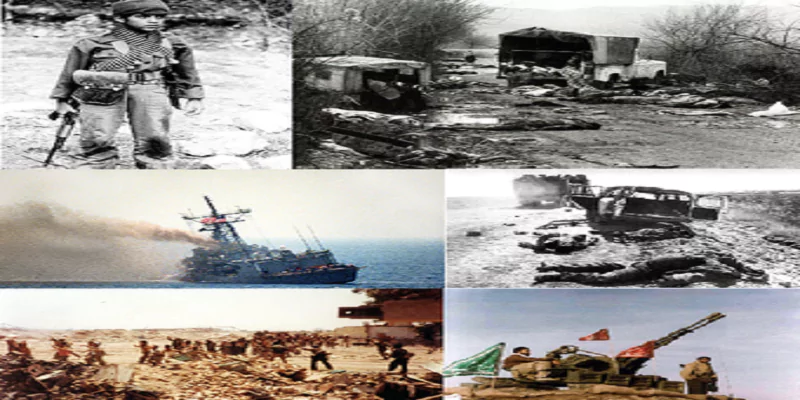Pakistan's Strategic Diplomacy Security and Economic Alliances in the Islamic World
Pakistan, as an Islamic country, has always sought to establish friendly relations between itself and its neighbours in the Islamic world. Its first foreign policy was designed to bring the Islamic countries together to build a solid type of alliance so that it could be a global player on global issues. The efforts of Pakistani officials in foreign affairs in this direction have yet to yield any results. Pakistan is a new nation and, having been conceived through religion, was filled with joy because the Islamic Brothers would certainly not leave her unaffected in any crisis. It was a certainty that the initial security and economic issues could be resolved with the assistance and aid of these Islamic brother nations. This was not only hope but also a crucial necessity for Pakistan to remove herself immediately from the threat that she was faced with like the Indian threat that was termed in the name of an enemy. With borders that bordered a considerable enemy, the risk could be lurking in the background amid Pakistan. It was essential to secure the help of Islamic nations to help India feel that she was not the only one in the world of nations.
In the introduction above, it's now clear that the foreign policy of Pakistan right from the beginning was defined by two main aspects: economy and security. When considering security, it was primarily India that, as considered by Pakistan, was an ongoing threat to Pakistan. It is essential to understand this: even if Pakistan were not a security concern, it would require economic aid, even if it was not for defence but for improving the infrastructure. Thus, security and economic conditions must be separated as the primary factor in international relations. In this light, the efforts of Pakistan to bring the Islamic nations closer to achieving its objectives - economic assistance and a response to the Indian threat- didn't meet expectations. It was required to establish a good relationship with these nations. Still, Pakistan needs to obliterate the influence of ideology in addition to security and economics in its external relations.
The context of those countries in this article is primarily concerned with Iraq and Kuwait and Pakistan's policies towards conflict between the two countries in 1990. In the case of Kuwait, Pakistan has enjoyed good relations regarding assistance to the economy and aid of strategic importance. Alongside Iraq, Pakistan set up friendly relations too. Iraq was the first Arab nation to acknowledge Pakistan and support Pakistan during the Bengal crisis. However, later on, in the Gulf War in 1990, Pakistan was forced to pick one among her Islamic brothers to back. When Iraq attacked Kuwait in August 1990, world leaders saw this as an act of war; mainly, the USA was firmly against Saddam's invasion since she was keenly watching the direction of Iraq's Soviets. This was an opportunity for the USA to teach Iraq a vital lesson and weaken her. The United Nations passed a resolution against this aggression and recommended an all-coalition force of nations to eliminate Saddam. Alongside the United States, the UK, and Saudi Arabia, many other countries have sent troops to the assistance of Kuwait. The war lasted until February 1998, when Iraq, following initial hesitations, accepted the UN Security Council resolution without reservation.
The most crucial thing in this scenario is the deployment of troops from Pakistan in Kuwait against Iraq which was one of the Islamic countries. Pakistan supported Kuwait in the first place because Pakistan was a member of the United Nations. When the United Nations adopted an anti-Iraq resolution, Iraq and Pakistan had no choice but to support the resolution. It was also widely believed that following the victory in Kuwait, Saddam might invade Saudi Arabia, a significant ally of Pakistan. To prevent this, Pakistan was required to join the coalition's forces. Thirdly One of the most notable policies of Pakistan is that it never joined with the aggressor. In this case, Iraq was the aggressor and was trying to gain annexation of Kuwait. Therefore, Pakistan, as per its long-standing policy, had to support Kuwait. In addition, Pakistan was determined to convince the world to believe that it has always cooperated with them in the face of any attack. To do this, Pakistan was required to have assistance from them in the event of the possibility of an Indian attack. In a sense, Pakistan had multidimensional interests. The assistance of Pakistan in Kuwait also gained benefits from strong bilateral relations with Saudi and Kuwait as a whole shortly. The 2005 earthquake in Kuwait became the very first country to offer assistance to Pakistan, and it is still receiving the aid of Kuwait. However, Saudi still has a significant role in Pakistan's foreign relations.
The Iraq war, while causing a rift in relations with Iraq however, also won a lot of support from the international community. Based on the previous argument, Pakistan couldn't do anything different, but it would be impossible to stop Pakistan from total isolation if it did. Therefore, for Pakistan, this was just the opposite of what Pakistan could avoid during the Gulf War.

